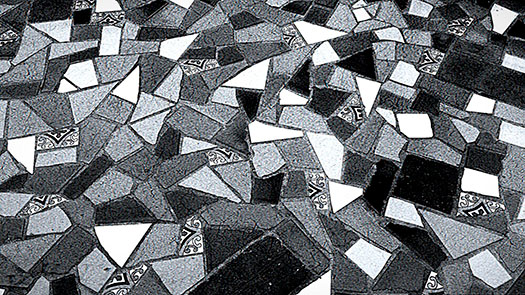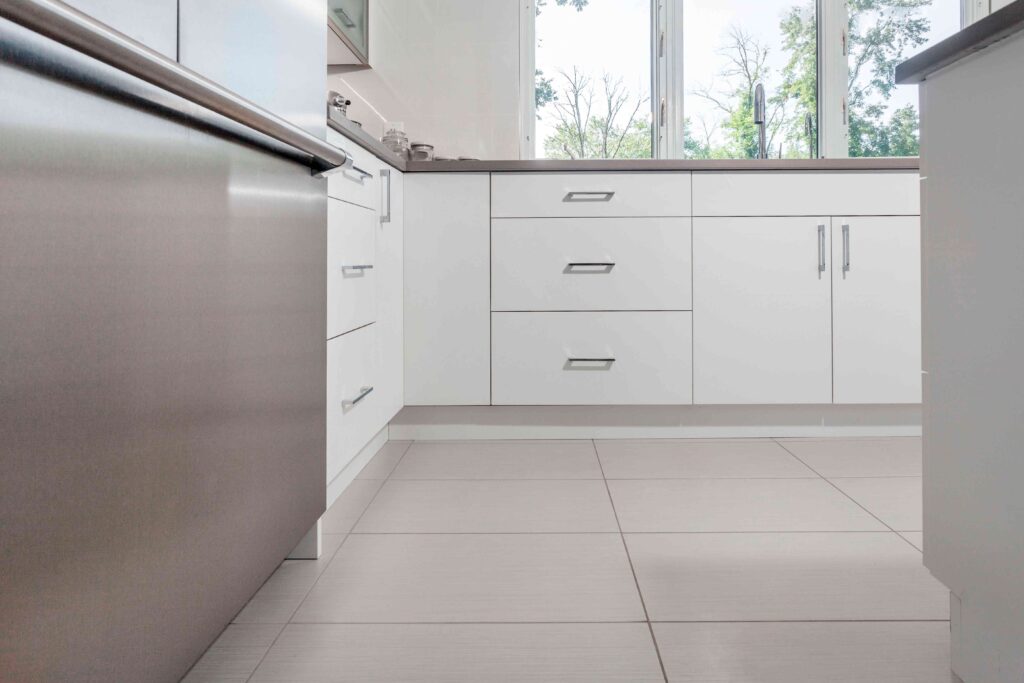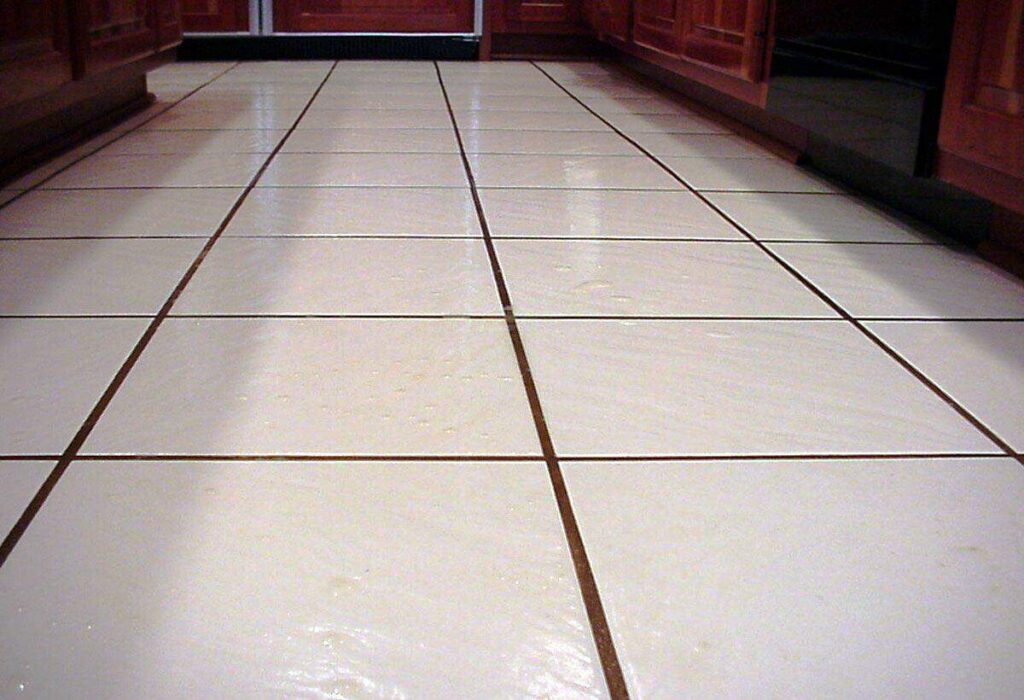A tiling project for your home can run, on average, from $300 all the way up to $5,000. Usually a tile installation will run between $800 to $2,500 range. Installing tiles can be a fun way to improve your home. Yet, with this size investment, you want to ensure you choose the tile with a nice lifespan in your home. Beyond what the tile is made of, its color, and its design, it’s essential to consider the ceramic tile PEI rating.
Why does this rating matter in tile selection? What does it tell you about the tile you’re choosing? Read on to learn more about ceramic tile PEI rating and why it matters.


What Is the PEI Scale?
If you’ve ever walked into a home improvement store or tile specialty store, you know the vast range of available tiles for any type of residential or commercial project. You probably also know that not all tiles will work in all areas.
One way you can narrow a selection is by considering the PEI scale score of the tile. The PEI score comes from the Porcelain Enamel Institute. The rating assigned to a tile helps define the tile’s hardness.
The PEI score defines the hardness of the glaze placed on the ceramic tile. It helps define the hardness of the tile and how much abrasion the tile can handle.
Who Sets the PEI Scale Score for Tile?
The Porcelain Enamel Institute is responsible for establishing a tile’s PEI rating. This organization has been ranking tiles since the 1930s.
Their rating helps to establish the durability and hardness of a tile.
These ratings were established as a way to know where to use a specific tile and where not to use it. The ratings help someone decide, based on the amount of traffic or wear and tear a tile would get, whether it’s an appropriate fitting tile for the space.
The tile manufacturer uses a standardized test the Porcelain Enamel Institute created to establish the PEI rating. There is no standard database that provides information on PEI ratings.
Instead, if you want to know the PEI rating of a tile, you’ll need to read the fine print from the tile manufacturer.
PEI Scale
When a tile is given a PEI rating, there are eight ratings it could receive. The scale goes from PEI 0 to PEI 6. There is also a PEI NR, which means no rating.
You already know that PEI scores help you understand the ceramic tile’s hardness.
When tested, the tile is put into a testing machine where revolutions rub on it. Its score comes about based on many abrasions the tile can withstand before noticeable abrasions occur.
Let’s look more specifically at the different categories of PEI scores and consider what the score means for the tile.

PEI 0 or NR Rating
A tile with a PEI rating of zero is a tile with little hardness. This is a tile that should never be used on a flooring surface. It will either break or show signs of abrasion very quickly if installed on a floor surface.
This is a tile that would be best suited for residential settings on walls like a bathroom or kitchen backsplash. It might also be a more decorative tile, but still only for walls.
The NR rating occurs when a tile is not rated or given a PEI score. This happens with the tile gets made of natural stone or stone that isn’t glazed. Because it’s natural without glaze, the tile wouldn’t be tested using the PEI testing method or assigned a score.
PEI 1
A ceramic tile with a PEI rating of one is appropriate for residential or commercial use. It should not be used anywhere where it would get foot traffic.
Instead, a PEI 1 score tile is appropriate for wall use only. This is a wall tile that would commonly be found on shower walls, kitchen backsplashes, or tile accent walls.
This type of tile will not withstand heavy traffic and is best used in light-use areas, even if it won’t get foot traffic.
PEI 2
PEI 2 tiles are commonly used in residential areas. It can withstand some foot traffic but is not recommended for heavy foot traffic areas.
This tile might work well in bathrooms, especially on the walls. It would also work well in areas with light residential traffic, like a dining room or living room.
You would not want to use PEI 2-rated tile in heavy foot traffic or commercial areas.
PEI 3
PEI 3-rated tile can get used in higher-traffic areas. There is some debate about whether PEI 3 tile should be used in commercial or residential spaces.
You’d probably want to skip this rated tile if you’re looking for tile for a heavy-use commercial space.
You could use a PEI 3 tile in residential use, like a laundry room, kitchen, bathroom, or foyer. It can withstand moderate foot traffic.
You probably don’t want to use a PEI 3 tile on a kitchen counter, for example, where it might get harder to use or experience more abrasion.
PEI 4
PEI 4 tile gets made for moderate to heavier use areas. It can handle some heavy use in residential settings. This might work well in residential home areas like an entry, foyer, or kitchen.
It would also work for most commercial areas. This might include areas in hotels, lobbies, corridors, or some restaurant areas.
A tile with a PEI 4 rating might also work in some light industrial settings.
PEI 5
A PEI 5 rating is the highest rating a tile can receive. It says this tile is hard and can handle nearly any space. It is the best tile to withstand moisture and dirt, too.
A PEI 5-rated tile is likely used in commercial spaces like shopping malls. It can also be used in high-traffic areas in hospitals or industrial settings.
The rated tile is also often used on the interior of swimming pools, too.

How Are PEI Tile Ratings Determined?
Technically, the PEI rating comes from the abrasion test the tile must undergo. This determines both the durability and the toughness of the glaze that’s part of the tile.
Remember, a tile would get a PEI NR score if it’s a natural stone with no glaze. You can’t test its abrasion toughness if you do not glaze it part of the tile.
The number of revolutions determines the score the tile can withstand before abrasion marks are noticeable when tested. The longer it can go, the higher score and the tougher the tile.
How Are PEI Ratings and Mohs Ratings Different?
In the tile industry, you may hear not just about PEI ratings but also Mohs ratings too. So, how are these two ways to rate tiles different?
Both measure the hardness and durability of a tile.
Technically, the PEI scale will tell you about wear. How durable is the tile and its ability to resist wear?
The Mohs rating comes from the French scientist Friedrich Mohs. This rating also measures the hardness of the actual glaze. This rating scale goes from one to ten.
A Mohs rating of one is like the softness of talc, while a Mohs rating of ten is like the hardness of a diamond.
Should You Pay Attention to Both Ratings?
Both ratings tell you something about a tile. While the Mohs rating tells you about the actual harness of the mineral used for the glaze, the PEI rating measures the resistance to wear in the glaze.
You’re likely to have an easier time getting access to the PEI rating than the Mohs rating. For nearly all situations, the PEI rating tells you enough about the tile to decide if the hardness will suit your space’s needs.
Only in extreme commercial or industrial spaces might you also need to consider the Mohs rating.
How Can It Help When Selecting Tile?
Since the PEI rating indicates tile durability, it’s essential to consider when selecting a tile. You want to know about the space in which you’ll be using the tile and how much wear the tile might experience.
Using a tile that’s rated a PEI 1, for example, might mean the tile would crack if used on a floor where it might get heavy wear. Likewise, a tile with a PEI 4 or 5 rating will likely be too heavy to install on a wall without sliding.
You might find some tiles with other classification ratings. You might also find that some manufacturers exclude PEI rating information and instead tell where the tile would work best.
When selecting a tile for a project, consider where you’re using it and how much wear it might receive, and learn as much about your choices as possible.
Check the Ceramic Tile PEI Rating When Choosing Tile
A ceramic tile PEI rating is vital information to consider when selecting a tile for a project. The rating can help you understand how durable and tough the tile will be over the wear it receives.
If you’re installing tile, you also need the right tools for the job. Check out the tile tools you might need and how they can improve the installation process.



Post a comment